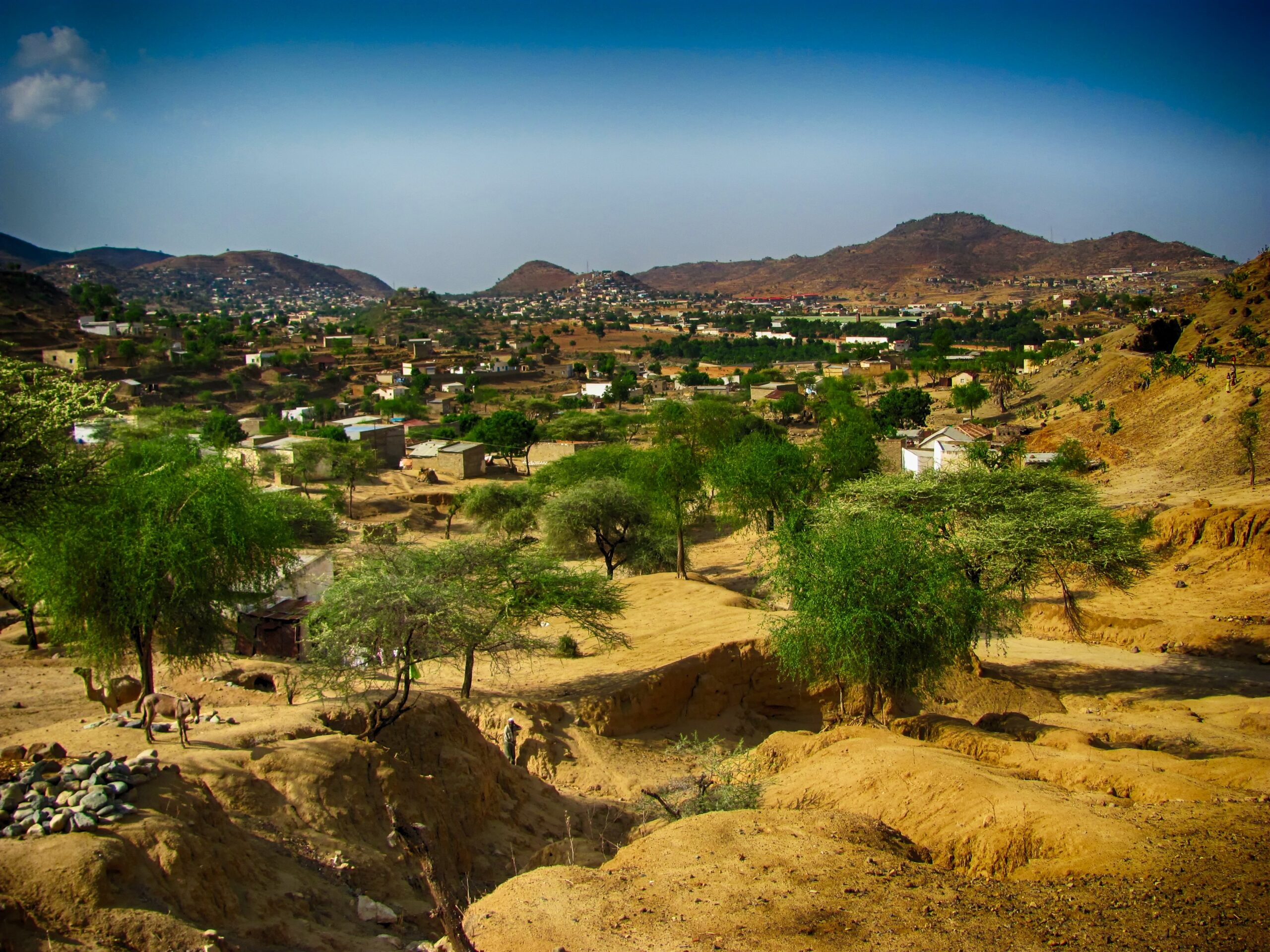
Voices of Poets from Eritrea
This booklet of Eritrean poems in English and German translation is the first publication from Tigrinya by ProMosaik in collaboration with Muenchner Poeterey. These poems come from a region characterized by strong political conflicts.
The Muenchner Poeterey sees translations as serving the human right to information. Understanding what people say and how they express themselves in their respective condition humaine is important for all people because it can first show that we are not as different as they want us to believe. Poets ask and answer in their own way. Power always feels it its own powerlessness, its weakness, the lack of unconditional obedience. And this is that we call the power of the poets’ powerlessness.
In every way (by Abrarr Osman)
I’ve seen
I’ve seen what was there and spoke
I knew confidently, I liked it unceasingly
Besides this, there’s nothing else
Whether prefer it, or hate it
To speak the reality i do know
You’re beautiful, just like the Sun’s twin
My Asmir flower, always liked
You don’t have flaws
Yours is unlike others
But, hundred out of hundred
You’re cute, hands down
Pleasure of the heart, just like the smell of RiHan
Superior beauty, without flaws
God is sweet, he can do anything
The image of that night is one in every of my unforgettable memories
You were sitting alone, without a neighbor
In the bright light, your Zuria was fading
Close in person, far in spirit
Chats, laughter, the nice and cozy times
No one was being attentive, all off-guard
I asked you for permission to light your candle
I’ve seen what was there and talked
I knew with certainty, I liked it endlessly
Besides this, there was nothing else
Nothing else
For myself
I’m new to this, I was fascinated a lot
There’s nothing similar to this
I feel cold, no support no love
I headed towards you with a speed I never know
I cannot leave with just talks and laughs
A feeling I didn’t know is following me
Did I have a drink?I feel a little warm
I did something that’s unlike me
I started not to get along with others
The blind feeling has knocked out my heart
It’s stressing me; it’s beyond what I can handle
Is it your personality? It gets along with everyone
Or is it the lips? The dark front tooth gums?
Is it your beauty? The stunning beauty
Or is it your laugh? Please tell me
I’m feeling cold, no support no love
I headed towards you with a speed I didn’t know
I cannot leave with just a brotherly introduction
I realized it later, it has turned it against me
This is new to me, I cannot eat or drink
Give a cure or be a cure
The Religion I Believe In (by Abraham Afwerki)
Getting brighter, getting wider,
light of development
We’ll live the country with harmony;
we can feel the warmth of love
Making me dizzy, Is it Smoke, or Cloud?
Our peaceful flag can be recognized from distance
In manhood’s life, in faith or reaching goal
It doesn’t ask for knowledge, in feelings, first meal (indicate level of knowledge)
It doesn’t have any difficult with language, place, bloodline, age
The religion I believe in is called Love
The religion I believe in is called Harmony
Without concern, it’s undeniable thing
Love is what makes the world one country
For our benefits to be guarded, for justice?
Let’s hold our faiths and respect each other
Let’s tolerate our differences and respect each other
Collective message, In belief’s delivery
For those who want justice, supporters of independence
To a strong respecter of his faith’s lessons
Love is life’s sweetness
Mother’s hug, in warm independence
Umbrella of ethnicities, example of harmony
Gift for those who passed, respect for those of who live
Love’s chain is what keeps identity together
Chosen fortune, undeniable thing
Love is what makes the world unique
Let’s hold our faiths, let’s admire each other
Let’s tolerate our differences, let’s respect each other
Tigrinya, deutsch Tigrinisch, ist eine semitische Sprache, die in Äthiopien und Eritrea gesprochen wird. Sie ist zusammen mit der altäthiopischen Sprache aus einer gemeinsamen älteren Vorform entstanden. Die Sprecher dieser Sprache werden heute in Äthiopien Tigray und in Eritrea Tigrinya genannt. Es gibt keine einheitliche Selbstbezeichnung, von Fremdvölkern wurden die Angehörigen dieses Volkes in Äthiopien mit dem Wort Habesha („Abessinier“) bezeichnet, das aber auch andere sprachlich und kulturell verwandte Ethnien wie die Amharen umfasst.
Heute ist es eine Region in starken Konflikten. Beim Friedensnobelpreisträger von 2019 Abiy Ahmed brodeln alte und neue Konflikte zwischen Äthiopien und Eritrea wieder auf. Kant forderte bereits in seiner Schrift zum Ewigen Frieden, dass Friedensverträge nicht neue Kriege vorbereiten sollen, denn Leidtragende sind immer und überall und auf allen Seiten die Menschen. Ihnen hier wenigstens eine Stimme zu geben, ihre Zärtlichkeit und Liebe offenbar zu machen, dem dient diese Veröffentlichung. ProMosaik hat eine Übersetzung ins Englische vorgelegt, ich habe das ins Deutsche übertragen. Die Muenchner Poeterey sieht Übersetzungen als im Dienste des Menschenrechts auf Information stehend. Zu verstehen, was Menschen sagen, wie sie sich in ihrer jeweiligen Condition Humaine ausdrücken, ist für alle Menschen wichtig, weil es als erstes zeigen kann, dass wir nicht so verschieden sind, wie man uns glauben machen will. Rousseau befand, dass man auf das Recht dann verzichten könne, wenn die Compassion bei allen Menschen groß genug wäre, dem „Nächsten“ einfach mit Respekt und Verstehen zu helfen. Levinas bringt es auf den Punkt: Im Angesicht des Anderen steht eine Frage unmittelbar an mich. Wie beantworte ich sie?
Dichter fragen auf ihre eigene Art. Und Dichter antworten auf ihre eigene Art. Die Macht fühlt darin immer ihre eigene Ohnmacht, ihre Schwäche, das Fehlen von bedingungslosem Gehorsam. Deshalb sind Dichter als Erste gefährdet, wenn es zu Ultra Vires Exzessen kommt. Die Macht kann ihre Fragen nicht stellen und findet darauf auch keine Antworten. Das ist die Stärke der Ohnmacht von Dichtern.
Susanna Bummel-Vohland, Muenchner Poeterey, München im April 2021
Video:
Link to purchase the book:
